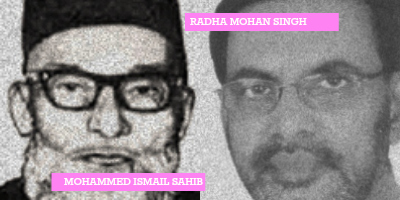 Previously, I discussed the historical and political motives behind a uniform civil code and the Supreme Court’s views on the subject. The Supreme Court has consistently advocated a move in the direction of uniformity as a matter of hortatory constitutional commitment under the Directive Principles of State Policy. In this article, I will lay out the arguments both for and against a common civil code, considering them from theoretical and practical perspectives.
Previously, I discussed the historical and political motives behind a uniform civil code and the Supreme Court’s views on the subject. The Supreme Court has consistently advocated a move in the direction of uniformity as a matter of hortatory constitutional commitment under the Directive Principles of State Policy. In this article, I will lay out the arguments both for and against a common civil code, considering them from theoretical and practical perspectives.
Arguments for a uniform civil code
First, the codification and unification of the variegated personal laws will produce a more coherent system of laws. The resulting internal consistency will obviate much of the existing confusion and enable easier and more efficient administration of laws by the judiciary. From the perspective of lawyers and litigants too, a uniform civil code will mean that there is a better understanding of the law.
Second, it can be argued that a uniform civil code will provide considerable impetus to the movement towards a more secular nation by placing all communities and religions on the same plane, and thereby placing an individual’s Indian identity before his or her religious affiliation.
Thirdly, from a gender perspective, it is increasingly argued that the personal laws of certain communities and religions treat men and women more unequally than other communities do. Considering the demands of a progressive democratic state, where women have just as important a role to play as men, enacting a common civil code would arguably eliminate this inequality, and lead to a more gender sensitive society.
Fourthly, a uniform civil code will infuse the Indian legal system with a much needed dose of parity between different religions in respect of their personal laws. For instance, divorce amongst Hindus and Christians is substantially more stringent and regulated (by virtue of being codified) than under Muslim law, where a divorce may proceed on the basis of the triple talaq. This argument overlaps to some extent with that of gender equality.
Arguments against a uniform civil code
The most widely touted argument against the enactment of a uniform civil code is that it will reflect a tyranny of the majority, and engender a great degree of divisiveness within the Indian society, by annihilating and marginalising the minorities within the nation by depriving them of their identity, which is kept intact primarily because of the presence of personal laws. However, as K.M. Munshi said in the Constituent Assembly, specifically citing the examples of Turkey and Egypt, “Nowhere in advanced Muslim countries the personal law of each minority has been recognised as so sacrosanct as to prevent the enactment of a Civil Code”.
 While the idea of a uniform civil code may sound attractive and appealing in theory and principle, it may be practically impossibile to implement for several reasons. First, the task of actually devising a set of rules that will govern all communities is a very daunting and onerous one considering the vast array of interests and sentiments to be accounted for, in order that all communities enjoy equal rights, which are also not disadvantageous compared to their situation under their separate personal laws. Secondly, since personal laws are driven by, and derived from, religious beliefs, it may be prudent not to disturb them by enacting a common code, for this runs the risk of engendering a great deal of animosity and tension between various religious communities – something that is already a major problem in India. In other words, if a uniform civil code is enacted, it could aggravate existing tensions, lead to significant disharmony on the ground, and also alienate vast sections of the Indian population. This is especially pertinent in light of the BJP’s ascent to power.
While the idea of a uniform civil code may sound attractive and appealing in theory and principle, it may be practically impossibile to implement for several reasons. First, the task of actually devising a set of rules that will govern all communities is a very daunting and onerous one considering the vast array of interests and sentiments to be accounted for, in order that all communities enjoy equal rights, which are also not disadvantageous compared to their situation under their separate personal laws. Secondly, since personal laws are driven by, and derived from, religious beliefs, it may be prudent not to disturb them by enacting a common code, for this runs the risk of engendering a great deal of animosity and tension between various religious communities – something that is already a major problem in India. In other words, if a uniform civil code is enacted, it could aggravate existing tensions, lead to significant disharmony on the ground, and also alienate vast sections of the Indian population. This is especially pertinent in light of the BJP’s ascent to power.
There are valid arguments on both sides of the ideological fence. Whatever the ultimate outcome may be however, the decision has to be well thought out and grounded in reason and not biased political motives or partisan communal interests.
Akshay Sreevatsa is an alumnus of the National Law School of India University, Bangalore and the Berekely University School of Law (Boalt Hall).


